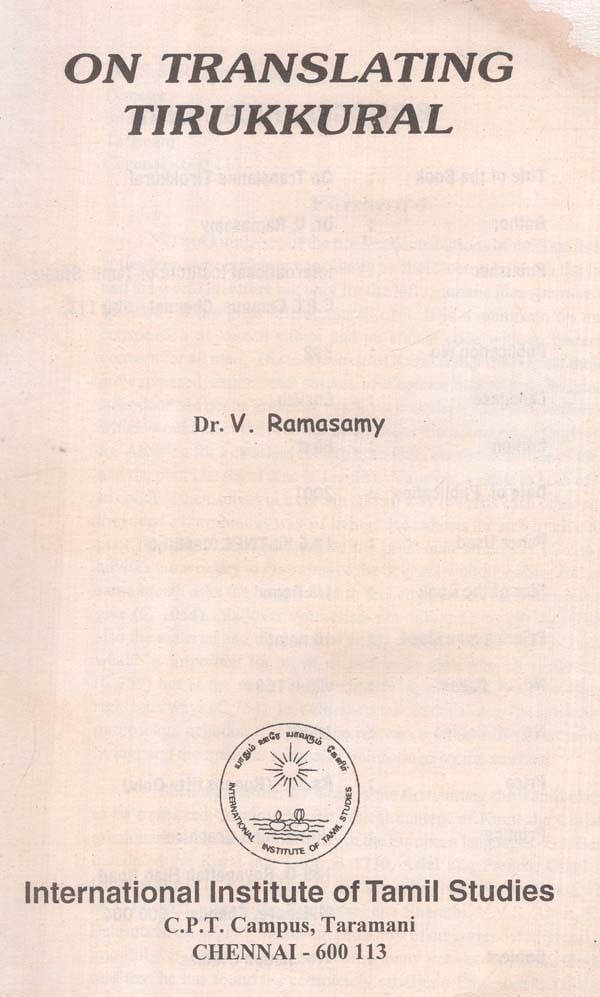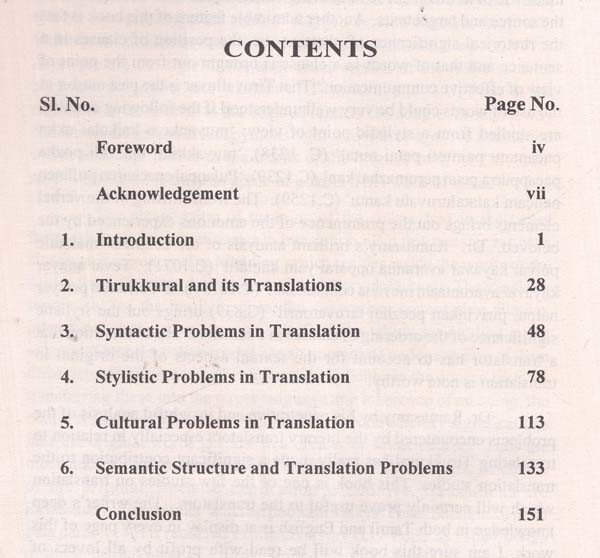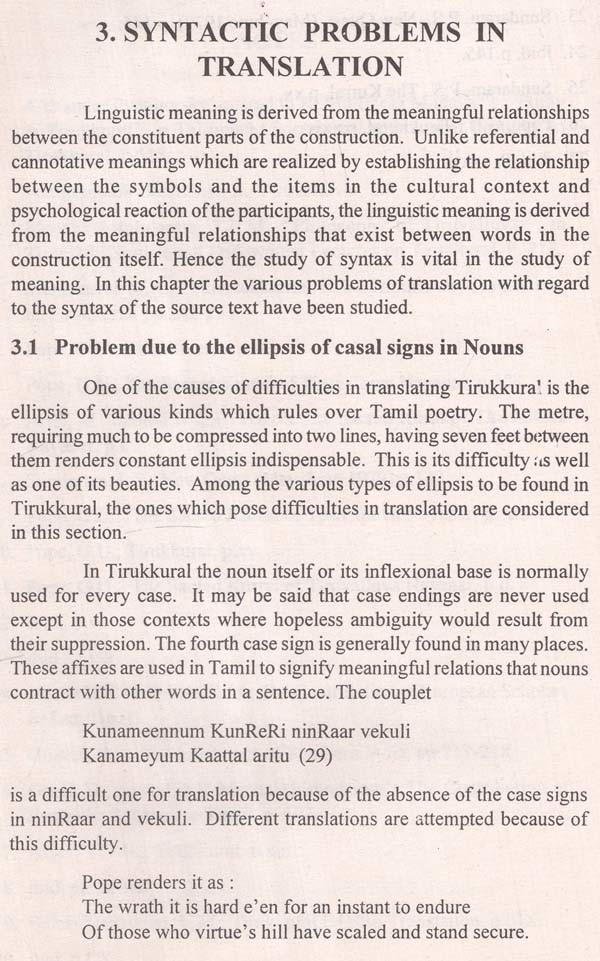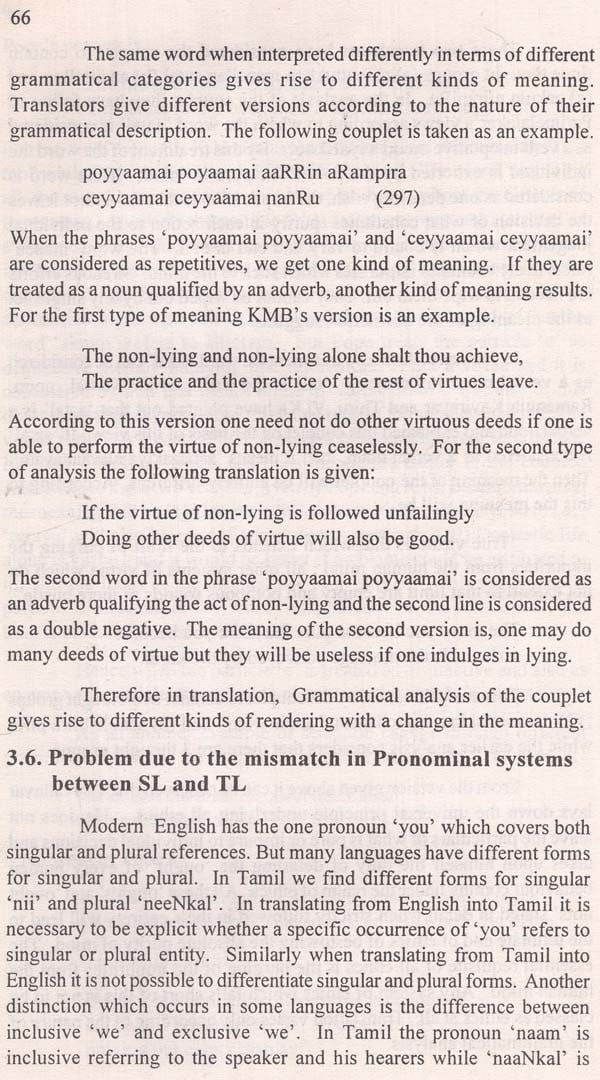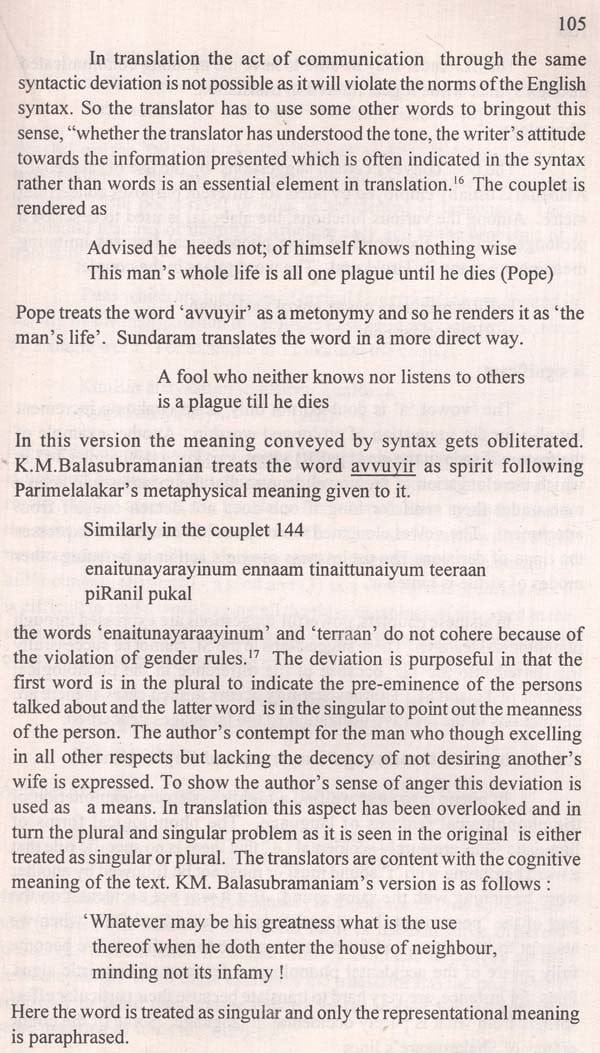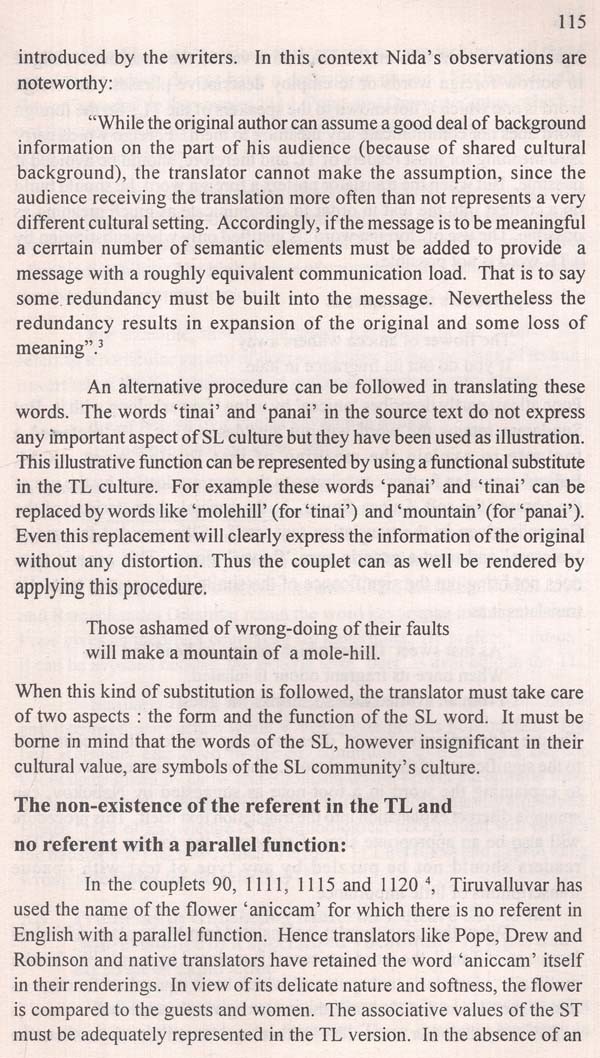
On Translating Tirukkural (An Old and Rare Book)
Book Specification
| Item Code: | AZH608 |
| Author: | V. Ramasamy |
| Publisher: | International Institute of Tamil Studies, Chennai |
| Language: | English |
| Edition: | 2001 |
| Pages: | 168 |
| Cover: | PAPERBACK |
| Other Details | 8.50x5.50 INCHES |
| Weight | 200 gm |
Book Description
Tirukkural, one of the noblest contributions of the Tamils to the entire humanity is rightly considered as chefd'oeuvre of both the Indian and the world literature not only for the lofty humane ideas permeating it but also for the great artistic merits of it. It is a manifesto on man, a constitution of human values and an ethical code with an underlying concern for all men. The uniqueness of Kural is that the noblest thoughts are expressed with master strokes of elegance and charm, imaginative splendour and poetic grandeur. Valluvar postulates a comprehensive code which would meet the realities of all major situations that life gives rise to. Aspiring for a classless society is an ideal but the existence of the rich and the poor classes of men is a reality. Valluvar appeals to both of them to conduct themselves in a certain ethical way towards each other so that they lead a harmonious way of living. He exhorts the rich to give to the poor (Couplet 222) and mitigate the poor man's hunger (C.226); he advises the wealthy to give alms to the beggars without hiding and in the same breath asks the beggars not to feel angry when the haves refuse to give (C. 1054). Valluvar synthesises not only the real and the ideal but also the material and the spiritual needs of man. According to Valluvar wealth is important for all of us and so he asks men to create wealth (C.759) but at the same time, he insists on producing wealth through righteous ways (C.754). In Valluvar's scheme of things the spiritual is a purposeless negation if it bears no relevance to the realities of material living; and the material is banal if uninformed by the spiritual.
Such a great literary work is the first among the Tamil classics to be translated. Inspired by the ethical content of Kural the Christian missionaries translated it into many of the European languages. C.J. Beschi translated the Kural into Latin in 1730, Ariel into French, Graul into German and G.U. Pope and F.W. Ellis into English. Native Schoars like M.S. Poornalingam Pillai, Suddhanandha Bharathi, V.V.S. Aiyer, K.M. Balasubramanian, P.S. Sundaram and a host of others rendered Tirukkural into English. Thus Valluvar has had so many translators but it cannot be said that he has found his completely satisfying English translator yet.
The present study aims to deal with the problems in translating literary works from Tamil into English. Instead of dealing with this subject of translation problems in a general and abstract manner, it is considered useful to study the subject with special reference to a particular work of literature. This method will be fruitful in understanding the real nature of difficulties which a translator faces in his actual experience. With this aim, I propose to study 'the problems in the art of translation with special reference to English versions of Tirukkural' in this present work. Usually when translation problems are discussed, scholars tend to treat the subject from the angle of comparing two languages. This approach might be useful for translators to understand the areas where the source and target languages differ as well as to make necessary adjustments in the process of transfer. But the study of translation of literature should be made scientifically or on an empirical basis because just as literature is the special function of language, so translation is a special function of literature. So there is an imperative need to study the problems of translation in the context of a literary work. The present study, therefore, has the purpose of understanding the problems in literary translation elaborately by considering a few English versions of Tirukkural as sample texts for analysis and comparison. This study has an additional aim in making the translators of Tirukkural aware of the problems involved. A large number of English translations of Tirukkural continue to be published periodically and this study will be found useful for the translators to improve the quality of their translations. An in-depth study of literary translation is to be made because it is the medium through which the cultural, spiritual and literary traditions of one language community get transferred to another language. Literary communication through translation sharpens and broadens the sensibility of the receptor language besides enriching it. There are also possibilities for the receptor language to acquire new modes of expression, conventions and models of sensibility through the literary translation. An awareness of the significance of these aspects will make the translators more conscious and alive to the tasks of translation.
**Contents and Sample Pages**
